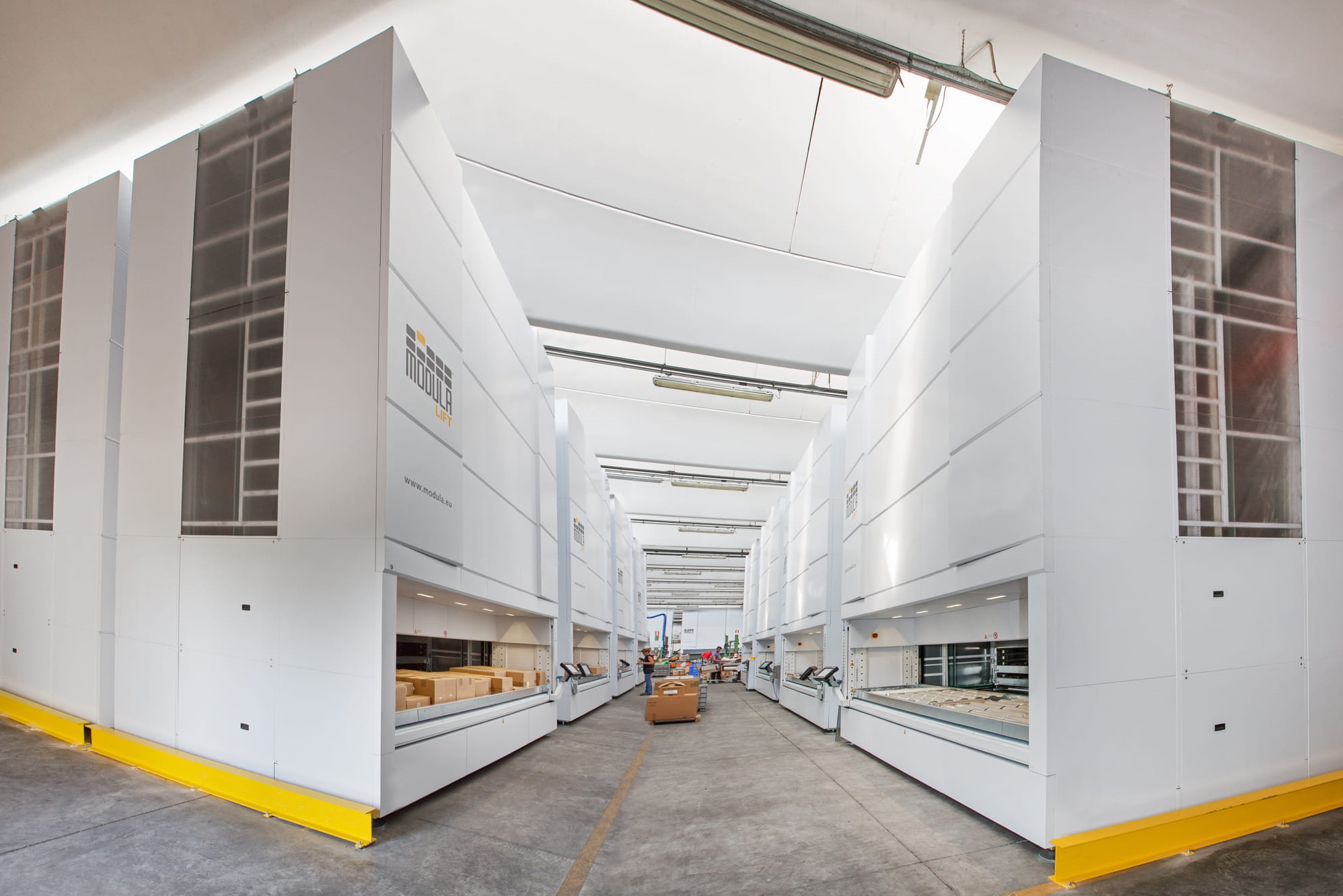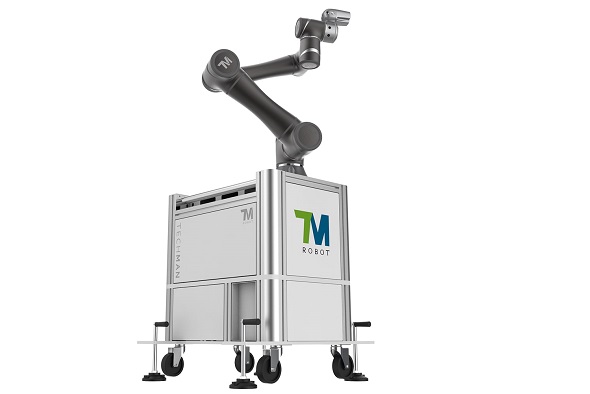Under the development of automation, a smart warehouse plays a crucial role in optimizing the management, storage, and distribution of goods. In this piece, join us as we discover 4 outstanding benefits that smart warehouses offer.
Introduction to smart warehouses
1.1. What is a smart warehouse?
A smart warehouse is a storage and goods management system designed and automated through the integration of advanced technologies such as automation, IoT (Internet of Things), artificial intelligence (AI), and inventory management software.
Smart warehouse
This is not only a storage place but also a center for coordination, optimization, and automation of processes within the supply chain. Smart warehouses typically can collect data from sensors, analyze information, and autonomously make decisions to optimize operational processes.
Learn more about Modula smart warehouses through the article: 9 advantages of a Modula VLM
1.2. What is a smart warehouse system?
A smart warehouse system is a complex system comprising basic components such as warehouse infrastructure, management software, sensors, automation equipment, and network systems to create an intelligent storage and management environment.
Modula smart warehouse (Image source: Modula)
Smart warehouse systems often combine flexibility and high accuracy thanks to the use of identification technologies, wireless communication, and the ability to integrate with other intelligent management systems such as ERP (Enterprise Resource Planning) or WMS (Warehouse Management System).
4 Key Benefits of Smart Warehouses
Enhanced Efficiency
Smart warehouses optimize operational efficiency significantly. Automation in inventory management, utilizing sensors, IoT, and artificial intelligence not only optimizes storage but also enhances movement within the warehouse. This reduces search times, optimizes space, and boosts overall productivity.
Flexibility
Smart warehouses are flexible and adaptable to market changes and customer demands. Combined with other intelligent management systems like ERP or WMS, they streamline supply chain processes from order placement to delivery, providing accurate and timely information for strategic decision-making.
Reduced Errors
By leveraging automation and IoT technologies, smart warehouses minimize errors, particularly those caused by human intervention in handling goods. Automated systems help eliminate or reduce human involvement in processes such as ordering, packaging, and transportation, etc.
Improved Responsiveness
Smart warehouses offer real-time information and data analysis, enabling managers and staff to respond promptly to changes or customer requests. This facilitates flexible service delivery and optimizes customer experience.
Applications of Technology in Smart Warehouses
Artificial Intelligence (AI)
AI is utilized in smart warehouses to predict inventory demand, optimize transportation schedules, and manage inventory effectively. This technology also supports data analysis for intelligent decision-making and forecasting potential operational issues.
Automation
Automation systems in smart warehouses include sensors, robots, and other automated devices that streamline processes such as goods movement, packaging, and quality inspection.
Blockchain
Blockchain can be applied to record transactions, from production processes to transportation, ensuring accurate data traceability and immutability.
Warehouse Management System (WMS)
WMS is crucial software for managing and coordinating warehouse operations. It provides capabilities to track, control inventory, and optimize warehouse processes.
Automated Guided Vehicles (AGV)
AGVs are self-driving vehicles within warehouses that automate the movement of goods from one location to another, reducing manual transport tasks and enhancing productivity.
Comparison between Smart Warehouses and Traditional Warehouses
| Smart Warehouse | Traditional Warehouse | |
| Advantages |
|
|
| Disadvantages |
|
|
Some considerations when choosing a smart warehouse
To effectively apply and utilize a smart warehouse, businesses should consider the following factors:
- Specific requirements and objectives: Clearly define the business goals such as optimizing efficiency, reducing costs, or enhancing flexibility in warehouse management.
- Flexibility and scalability: Ensure that the smart warehouse can adapt to market changes and scale as the business grows. Additionally, businesses need robust data security measures to mitigate risks.
- Integration capability: Ensure the system is compatible with other systems like ERP, CRM, etc., to create a comprehensive and efficient ecosystem.
- Choosing reputable service providers: If aiming to rapidly enhance supply chain management capabilities in a globalized economy, opt for reputable providers with years of market experience such as: Temas, Modula, etc.


 Read more
Read more



